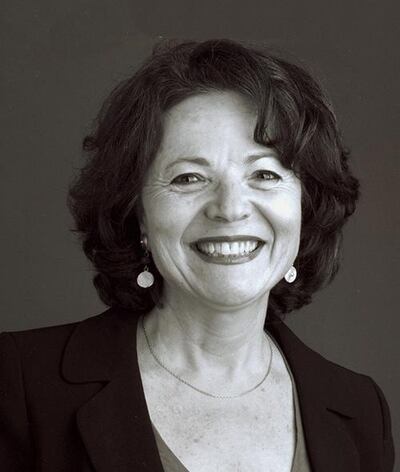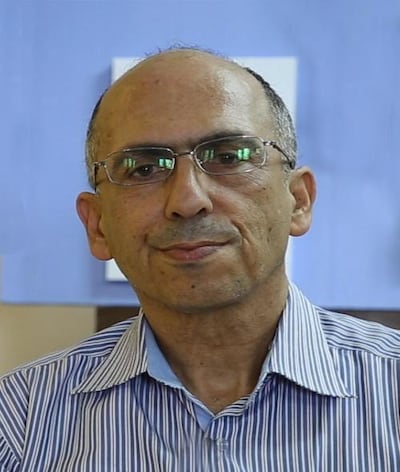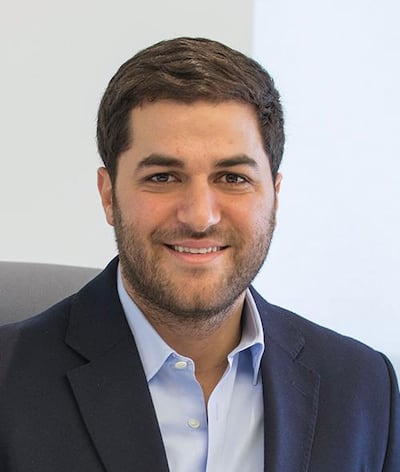After a year of postponements, the 10th Takreem Awards have finally taken place, paying tribute to a number of people who have effected positive change in the Arab world.
Founded in 2009 by television personality Ricardo Karam, Takreem is a non-profit organisation that honours Arab individuals for their contributions to culture, science, education, environmental studies, humanitarian services and socio-economic development.
The foundation aims to shine a spotlight on Arab achievers to not only acknowledge their efforts, but to encourage others to follow suit.
The event was originally slated to take place in Beirut, Lebanon, in November 2019. However, the ceremony was pushed back a number of times in response to the country's ongoing political and economic crisis, as well as the global pandemic. The awards were eventually broadcast on Sunday, November 29.
In his opening speech, Karam commended the resilience and fortitude of Beirut and its residents, saying: “Beirut is the hero, despite all the difficulties and tragedies, the last of which was the port blast. It will remain a platform for culture, science, art and modernity."
Among those recognised at this year’s Takreem Awards was maestro Karim Wasfi. The Iraqi cellist won the Cultural Excellence Award for his blistering performances from war-rubbled areas in his homeland.
Also receiving the Cultural Excellence Award was the Khalidi Library in Jerusalem. The library was established in 1899 by Hajj Raghib Al Khalidi with the intention of restoring prosperity to the Arab world by fostering knowledge. The library, which houses some of the most renowned Islamic manuscripts, closed during conflict in 1967 and reopened in 2016 after extensive renovation, cataloguing and preservation.
Receiving the Takreem Young Entrepreneur Award was Rami Al Qawasmi. The Jordanian national is the co-founder and chief executive of mawdoo3.com, a website that provides digital content in Arabic, in a similar vein to Wikipedia. The site logs more than 42 million unique visitors a month.
Husham Al Thahabi, meanwhile, won the Humanitarian and Civic Services Award. Al Thahabi is the founder of the Iraqi Home Foundation for Creativity, an organisation dedicated to caring for homeless orphans in the country.

Essma Ben Hamida, co-founder of the NGO Enda Inter-Arabe and microfinance institution Enda Tamweel, won the Outstanding Arab Woman Award.
The social entrepreneur and development activist, who has also worked as a teacher and journalist, was the first to introduce microfinance to her home country of Tunisia. In 24 years, Enda Tamweel has served 800,000 low-income micro-entrepreneurs, two-thirds of them women living in disadvantaged urban and rural areas of Tunisia.
Haifa Jamal Al Lail, the president of Effat University in Jeddah, Saudi Arabia, received the Excellence in Education Award.
She has been involved in education reform in Saudi Arabia since 1991, focusing on women’s issues and cultural dialogue. In 2005, she was honoured as part of the 1000 Women for the Nobel Peace Prize.
Jordan's INJAZ Al-Arab, a non-profit organisation dedicated to youth education and training in the Arab world, also won the Excellence in Education Award.

Mazin Qumsiyeh, a teacher and scientific researcher at Bethlehem and Birzeit universities, received the Environmental Development and Sustainability Award. After serving on the faculty of the University of Tennessee, Duke University and Yale University, Qumsiyeh and his wife returned to the region in 2008.
They launched a number of institutions and projects, one of which was a clinical genetics laboratory to serve cancer patients, among others. They also founded and ran, as full-time volunteers, the Palestine Institute for Biodiversity and Sustainability at Bethlehem University.
The Association for the Protection of the Environment (APE) won the Environmental Development and Sustainability Award. The Egyptian NGO was established in 1984 to train and equip garbage collectors in safe solid waste management.
Professor Hilal Lashuel received the Scientific and Technological Achievement Award.
Lashuel, who is originally from Yemen, is the director of the Laboratory of Molecular and Chemical Biology of Neurodegeneration at the Brain Mind Institute at the Swiss Federal Institute of Technology Lausanne. Research efforts in Lashuel’s laboratory focus on understanding the molecular mechanisms of neurons and developing novel strategies to diagnose and treat neurodegenerative diseases such as Alzheimer’s and Parkinson’s.
The Mentor Foundation received the International Contribution to Arab Society Award. Founded in Switzerland in 1994 by Queen Silvia of Sweden, the youth-focused foundation's programmes have benefited more than six million people in the past 25 years, including one million beneficiaries in 12 Arab countries.
George Bitar, one of the founders of Kulluna Irada, a non-profit organisation that seeks political reforms in Lebanon, won the Corporate Leadership Award. Bitar is also co-founder and president of Social and Economic Action for Lebanon; the organisation gives grants to underserved Lebanese communities.
The award ceremony also recognised the contributions of the late Stephane Attali, director-general of the Ecole Superieure des Affaires (ESA) in Beirut, as well as Claude Doumit-Serhal, a renowned archaeologist who led important excavation missions in Lebanon.






